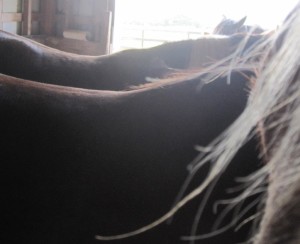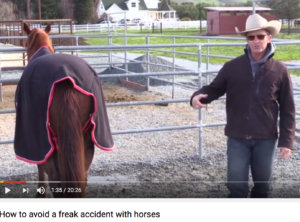There’s a lot of research out there disparaging multitasking. Scientists say it’s inefficient. They say ideal productivity and
efficiency requires focus.
But often horse handling requires a certain lack of focus and an ability to take in, understand, and react to multiple developments all at the same time. The key, I say, is to be in that moment.
When I visited with BestHorsePractices Summit presenter Warwick Schiller in Phoenix last weekend, we shared some thoughts on the issue. His video “rant” (his words, not mine) explains so-called Freak Accidents and the many warning signs horses give us leading up to these usually completely avoidable accidents. Watch it here.
Consider working with a horse in a paddock with other horses:
As you approach a horse for haltering, you must assess:
- His temperament
- His location and relationship compared to the other horses (like whether he likes to screen himself or whether he gets bullied)
- How hungry they may be.
- How bothered by bugs they may be.
As you halter and move your horse, a whole new set of tasks appear:
- How does he move through gates?
- Will the others want to come, too?
- How well does that gate close?
You answer these questions by:
- Watching ears and lips and tails.
- Watching for bracing or willingness.
- Listening for movement that you might not see.
- Being aware of the environmental conditions (like an approaching storm or slippery surfaces)
Our work is not unlike that of an Office Manager or Stay-at-Home parent. On any given moment, working with horses requires us to be all there, but it doesn’t require us to focus on just one thing. If we were to focus on just haltering a horse, we might end up hurt or horses might get loose.
The wider lens often serves us better.
Read article on Feel.
